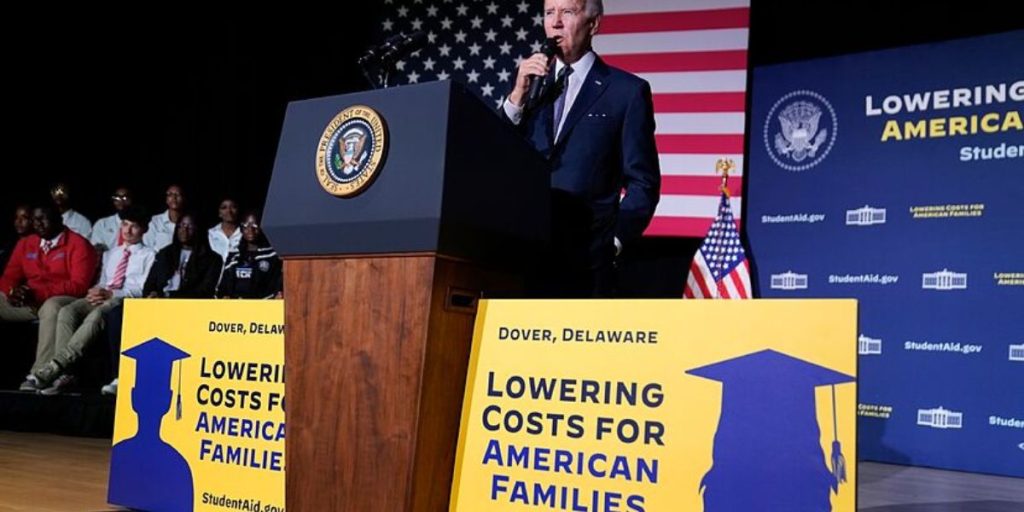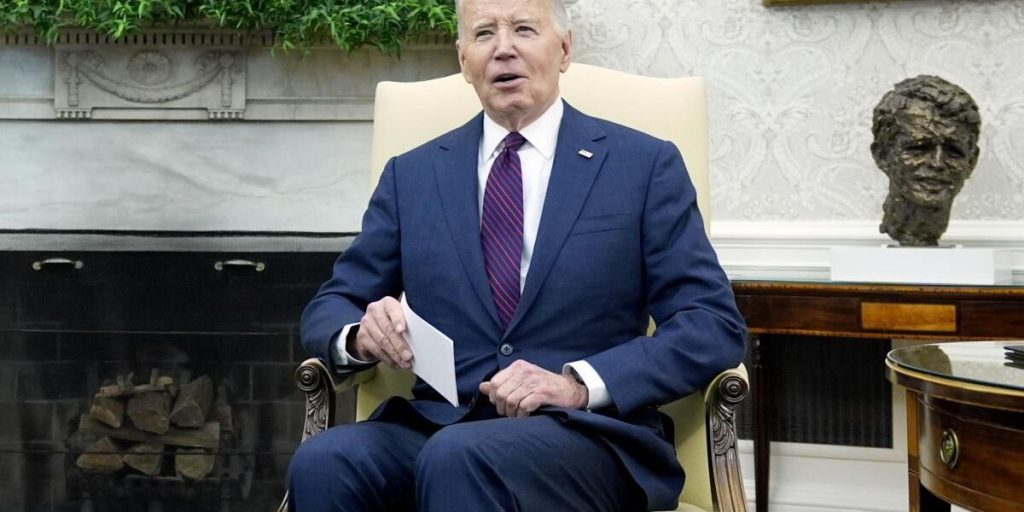President Joe Biden’s latest idea for student loan cancellation is moving forward as a proposed regulation, giving him a new opportunity to fulfill a campaign pledge and galvanize young people ahead of the November election.
The Education Department filed paperwork on Tuesday for a new regulation that would implement the cancellation that Biden announced last week. It must still go through a 30-day public comment period and another review before it can be considered final.
It’s a more targeted plan than the one that the US Supreme Court rejected last year. The new plan has a different legal basis and aims to cancel or reduce loans for over 25 million Americans.

Conservative opponents, who regard it as an unjust burden on taxpayers who did not attend college, have promised to challenge it in court.
During a trip to Wisconsin last week, the Democratic president touted the plan, claiming it would give “life-changing” assistance. He identified five types of people who might be eligible for assistance.
The Education Department’s new paperwork covers four of those categories, and a separate proposal will be issued later to discuss how those experiencing various types of hardship can receive assistance.
The biggest forgiveness category would benefit borrowers who owe more than they borrowed due to escalating interest. It would wipe out up to $20,000 in interest for everyone in that circumstance, while individuals with yearly earnings under $120,000 and enrolled in income-driven repayment plans would have all of their interest erased with no upper cap. It would be completed automatically.
Another category would eliminate loans for persons who have been paying back their undergraduate school loans for at least 20 years and graduate loans for the past 25 years.
It would automatically cancel loans for students who attended universities or programs with minimal financial value. Borrowers would be eligible for cancellation if they attended a program that resulted in graduates earning little more than those with a high school diploma, or programs that resulted in graduates having a high debt-to-income ratio.
Borrowers who are eligible for other government forgiveness programs but have not applied will also have their loans wiped. Federal education officials would use current data to identify those individuals and provide assistance. It is aimed to target folks who are unaware of existing initiatives or have been discouraged by lengthy application processes.
The plan was worked up during numerous hearings as part of a federal regulations procedure that solicits input from outside experts. Students, college administrators, state officials, borrower advocates, and loan servicers all contributed to the plan’s development.

During that process, campaigners advocated for a fifth category of forgiveness for persons who face various types of hardship and are unable to repay their loans. The Education Department said it is still working on the details of the regulation, with a separate proposal expected “in the coming months.”
According to the agency, the hardship proposal will cancel loans for borrowers who are at high risk of default, as well as those who face other hardships such as expensive medical and caregiving costs. The proposal will be similar to one agreed upon by independent experts throughout the rulemaking process, according to the agency.
A proposed regulation typically takes months to finalize, followed by months before it goes into force. The Biden administration stated that it intends to begin implementing some aspects of the new proposal as soon as this fall, citing the education secretary’s authority to adopt laws early in specific situations.
Republicans are vehemently opposed to any widespread student loan cancellation, claiming that it would be an unjust bailout for college graduates.
“Where is the relief for the guy who didn’t go to college but is working to pay off the loan on the truck he takes to work?” Sen. Bill Cassidy, a Republican from Louisiana, is the ranking member of the Senate Health, Education, Labor, and Pensions Committee. “What about the woman who paid off her student loans but is now struggling to pay her mortgage? Instead, the Biden administration is making these Americans bear the burden of someone else’s student debt.
Two Republican state coalitions have sued the Biden administration to halt a different repayment plan that provides a faster road to loan forgiveness.
The White House says it is convinced the new plan is lawful, citing the Higher Education Act, which gives the education secretary the authority to forgive student loans in certain circumstances.